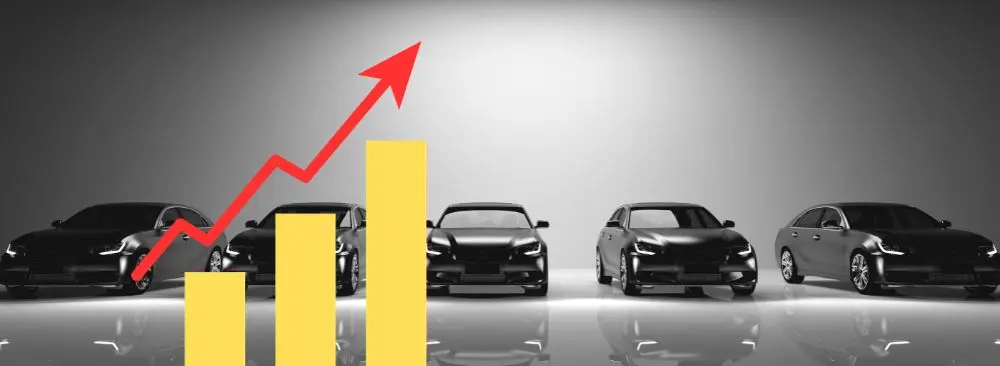The management of a vehicle fleet can be intricate and demanding, particularly when it comes to the fleet budget and cost analysis. Whether your operations involve a ride-sharing service or a delivery fleet, comprehending the financial facets of your business is crucial for long-term success.

This article will explore managing your fleet budget effectively and saving money, covering everything from upfront costs to total cost of ownership (TCO).
Critical Points For Managing Your Fleet Budget:
Budgeting and Cost Analysis
Managing your fleet effectively requires careful budgeting and cost analysis. By comprehensively understanding the financial aspects, you can make informed decisions that contribute to the success of your car fleet.
Fleet Upfront costs
The upfront costs associated with acquiring your fleet are essential to consider. These costs can significantly impact your initial budget and may include:
Vehicle Purchase Costs
- Example: When buying new vehicles in Berlin for your ride-sharing service, the purchase price of each car is a substantial upfront cost.
Taxes and Registration Fees
- Example: In Germany, you must account for taxes like the value-added tax (VAT) and registration fees when adding vehicles to your fleet in Frankfurt.
Customization and Equipment
- Example: If you need to equip your commercial vehicles in Munich with specialized racks or tools, factor in the cost of customizations.
Insurance Premiums
- Example: You may be required to pay an upfront premium when insuring your vehicles for a year, considering factors like coverage and location in Stuttgart.
Financing Fees
- Example: When you decide to finance your vehicles through loans, you should expect interest and financing charges.
Fleet operating expenses
Operating expenses are ongoing costs you’ll incur while running your car fleet. Understanding these expenses is crucial for maintaining profitability:
Fuel and Energy Costs
- Example: Operating a delivery service in Hamburg means factoring in regular fuel costs, which fluctuate with fuel prices.
Maintenance and Repairs
- Example: Budgeting for routine maintenance, occasional repairs, and replacement parts is necessary, especially for vehicles that are heavily used.
Driver Salaries and Benefits
- Example: Employee salaries and benefits for your drivers in Munich are recurring expenses that directly affect your budget.
Tires and Consumables
- Example: Regularly replacing tires, brake pads, and other consumables for your fleet in Berlin helps maintain vehicle safety.
Insurance Premiums
- Example: Insurance premiums, paid periodically, are part of your operational expenses.
Total cost of ownership (TCO)
The Total Cost of Ownership (TCO) is a comprehensive metric that accounts for all costs associated with a vehicle over its entire lifespan. Calculating TCO helps you make well-informed decisions about your fleet:
Depreciation
- Example: In Frankfurt, a new vehicle may depreciate more quickly in the first few years, impacting its TCO compared to a used car.
Fuel and Energy Efficiency
- Example: Electric vehicles (EVs) have lower energy costs than traditional gasoline vehicles, which affects TCO, especially in cities like Stuttgart, where EV infrastructure is robust.
Fleet Maintenance and Repairs
- Example: Robust maintenance practices in Hamburg can extend the lifespan of your vehicles, reducing TCO.
Resale Value
- Example: When planning to replace your fleet in Munich, vehicles with higher resale value can lower your fleet’s overall TCO.
Operational Efficiency
- Example: Efficient route planning and telematics technology can lower fuel consumption and maintenance costs, positively impacting TCO.
Understanding your fleet’s TCO is vital for long-term financial planning. It allows you to make strategic decisions about vehicle acquisition, maintenance, and retirement, ensuring your fleet remains cost-effective throughout its lifecycle.
A thorough analysis of upfront and ongoing operating expenses enables the creation of a realistic budget. This strategic financial planning can effectively position your car fleet for success in the highly competitive EU market.
How The Understanding Of Car Reviews Can Help When Buying A Fleet
Understanding the total cost of ownership is crucial for long-term financial planning. It aids in making informed decisions on vehicle acquisition and maintenance. This concept is also relevant when managing a fleet of vehicles for a business or organization. Careful analysis of upfront and ongoing operating expenses enables you to create a realistic budget. This financial strategy can position your car fleet for success in the competitive EU market.
Therefore, it is crucial to consider TCO when evaluating car reviews, and part 1 of the “How To Evaluate Car Reviews” series lays the foundation for this.
Conclusion
Managing your fleet budget effectively and saving money requires careful budgeting and cost analysis. Understanding your operations’ financial aspects comprehensively allows for informed decisions, contributing to your car fleet’s success.
You can create a realistic budget by analyzing upfront and ongoing operating expenses and understanding the total cost of ownership. And financial strategy that positions your car fleet for success in the competitive EU market.
FAQs: Fleet Budgeting and Cost Analysis
To manage your fleet budget effectively, you must understand the financial aspects of your operations, such as vehicle acquisition, maintenance, and retirement.
Upfront costs are expenses of acquiring your fleet, such as vehicle purchases, taxes, insurance, and financing. They must be carefully considered.
Ongoing operating expenses are recurring costs of running your car fleet, such as fuel, maintenance, driver salaries, tires, and insurance. They impact profitability by reducing your net income.
TCO is a comprehensive metric that accounts for all costs associated with a vehicle over its entire lifespan. It helps you make well-informed decisions about your fleet by considering depreciation, fuel efficiency, maintenance, resale value, and operational efficiency.
Analyze upfront and ongoing operating expenses, TCO, and other factors that affect your car fleet’s performance in the EU market to create a realistic budget and financial strategy.
Fleet Related Topics:
Options Of Fleet Acquisition: Buying New Vs. Used Vehicles Or Leasing
Fleet Sizing And Composition: Best Practices For Your Business
Fleet Operations: 10 Easy Ways To Reduce The Operating Costs
